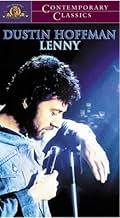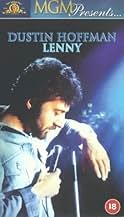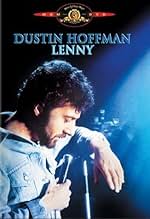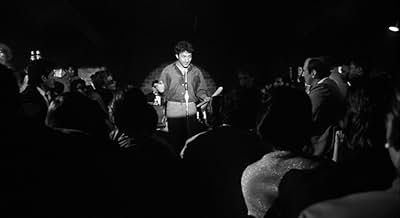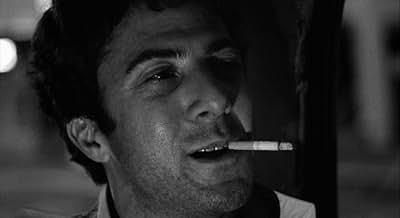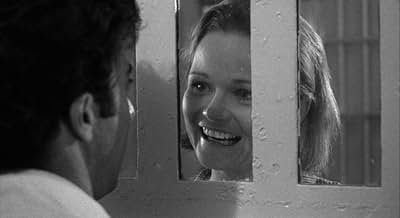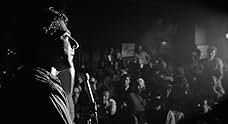Ajouter une intrigue dans votre langueThe story of acerbic 1960s comic Lenny Bruce, whose groundbreaking, no-holds-barred style and social commentary was often deemed by the Establishment as too obscene for the public.The story of acerbic 1960s comic Lenny Bruce, whose groundbreaking, no-holds-barred style and social commentary was often deemed by the Establishment as too obscene for the public.The story of acerbic 1960s comic Lenny Bruce, whose groundbreaking, no-holds-barred style and social commentary was often deemed by the Establishment as too obscene for the public.
- Nommé pour 6 oscars
- 7 victoires et 17 nominations au total
- Girl
- (as Kathie Witt)
- Hawaiian Judge
- (as Monroe Meyers)
Histoire
Le saviez-vous
- AnecdotesThe scene in which Lenny Bruce does his act in a raincoat, near the movie's end, came from a Lenny Bruce show that a student tape-recorded and sent to Dustin Hoffman. Bruce's lines are directly from the tape.
- GaffesDuring the movie's opening monologue, Lenny says that it's 1964 and then references Jerry Lewis's MDA Telethon, which debuted in 1966.
- Citations
Lenny Bruce: What's the worst thing you can say to anybody? ''Fuck you, mister!'' That's really weird, because if l wanted to hurt you, l should say, ''Unfuck you, mister'' Because ''fuck you'' is really nice, man.
- ConnexionsFeatured in Precious Images (1986)
Made in a fairly familiar quasi-documentary style, 'Lenny' begins with 'present day' (i.e. 1974) interviews with the surviving characters from Lenny's life, cut with flashbacks to his 1950's beginnings as a 'traditional' comic, and 'late' live performances in his post-drug-bust days. As the film progresses and the narrative catches up with the interviews, the gaps between these segments 'close'. Clever use is made of some of Lenny's material, cutting from keywords or phrases in his bits, to events in his life with inspired or correlated to them.
All the same there is something a little dry and disappointing in the film's structure: almost as if it could have used a more conventional, linear narrative, like Milos Forman's tribute to Andy Kauffman, 'Man on the Moon' would use to such great effect 25 years later.
Ironically though, such a structure might have deprived of us of seeing more of Hoffman doing Lenny's bits 'live' on stage - and for me these were the highlights, which I wish had lasted longer, rather than flashing back to some past event after 30 seconds. As a big Lenny Bruce fan, I can only say that Hoffman's portrayal is almost supernatural. It's like he's channeling the guy. He has his mannerisms and improvisational style down perfectly. You would swear you were seeing these improvisations for the first time if you hadn't heard them already. In fact, Hoffman possibly even improves on Lenny's delivery in one small respect. Lenny had a penchant for the 'conversation' that would erupt in the middle of one of his bits, between two or more characters. Hoffman probably puts a bit more distinction between the characters than Lenny often did (quite often they would all just sound like Lenny, which was part of the magic, but never mind.) Over 30 years on, it's quite amazing to me that this film has become a relative obscurity in Dustin Hoffman's filmography. Frankly, though Hoffman has blown me away on various occasions, I don't ever remember being more blown away than this. And if you were to pick easy people to imitate, I doubt Lenny Bruce on stage would be high on many people's lists.
The film as a whole is good, but to witness Hoffman channeling Bruce, it's a must-see.
- Lupercali
- 6 juill. 2005
- Lien permanent
Meilleurs choix
- How long is Lenny?Propulsé par Alexa
Détails
Box-office
- Budget
- 2 700 000 $ US (estimation)
- Durée1 heure 51 minutes
- Couleur
- Mixage
- Rapport de forme
- 1.85 : 1
Contribuer à cette page



